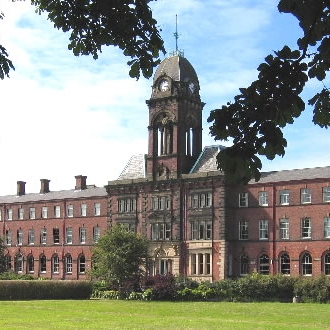
News

Are UK universities starting to Brexit IAW?
ROLENE MARKS
Jewish students are frightened to attend university during this week and those who do, often do not want to be identified as Jewish or even worse, Zionists.
Most universities hide behind “freedom of speech” when it comes to allowing an event of this kind. Very often, this “freedom of speech” veers dangerously into hate speech.
But is the trend changing? Anti-Semitism is on the rise and is at levels not seen since prior to the Second World War.
Prior to IAW events in the UK, University Minister Jo Johnson urged universities to stop “intimidation and violence” against Jewish students. Johnson has written to the chief executives of the representative bodies for higher education institutions, reminding them of their responsibility to ensure students do not suffer “discrimination, harassment or victimisation”.
So, has this resulted in UK universities starting to Brexit IAW? So far, four universities have either cancelled events, or IAW altogether.
The University of Central Lancashire has identified the threat and the harm that pro-Israel students face and has taken the decision to cancel Israel Apartheid Week on the campus, saying that the event is in fact, unlawful.
“The UK government has formally adopted the International Holocaust Remembrance Alliance’s new definition of what constitutes anti-Semitism. “We believe the proposed talk contravenes the new definition and furthermore breaches university protocols for such events, where we require assurances of a balanced view or a panel of speakers representing all interests,” said the university’s spokesperson.
He added: “In this instance our procedures determined that the proposed event would not be lawful and therefore it will not proceed as planned.”
The official definition reads as follows:
“Anti-Semitism is a certain perception of Jews, which may be expressed as hatred toward Jews. Rhetorical and physical manifestations of anti-Semitism are directed towards Jewish or non-Jewish individuals and/or their property, towards Jewish community institutions and religious facilities.”
This decision has been welcomed by many Israel advocacy groups and is further supported by more and more legislation being introduced in various countries around the world as they recognise that the BDS movement is less about Palestinian rights than it is about the delegitimisation and eventual destruction of the Jewish state.
Other universities are following suit. The University of Central London has also cancelled IAW “Checkpoint” events. The UCL is also the university where pro-Israel speaker, Hen Mazzig and his supporters were subjected to a protest that turned violent last year that some called “the campus pogrom”.
Kings College’s IAW event organisers have been told they cannot host notorious South African speaker (who has been banned from speaking in France) Farid Esack on campus, but they have moved the venue.
The fourth university is Exeter which has also banned the “Checkpoint” event, saying “it blocks a thoroughfare for students and staff to congregate”.
The decision follows national news coverage reporting the discovery of a swastika carved into a door and a “Rights for Whites” sign in the university residence halls. There were reports of anti-Semitic slogans at a social, claiming “the Holocaust was a good time”.
Disdain for the BDS movement is growing. University campuses are perhaps the most important frontier still left to conquer. It is here where future opinion leaders and policy makers are bred.




